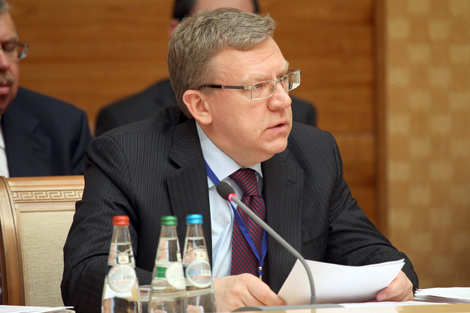Opinions & Interviews
Call to remove non-tariff barriers, trade exemptions in EAEU

MOSCOW, 31 October (BelTA) – Trade exemptions and non-tariff barriers remain the main obstacles to the growth of trade in the Eurasian Economic Union (EAEU). However, the elimination of these obstacles will benefit Belarus rather than Russia and Kazakhstan, Aleksei Kudrin, Chairman of the Board of the Center for Strategic Research, noted at the 12th international conference Eurasian Development in Moscow on 31 October, BelTA has learned.
“We need to remove barriers, build new joint institutions, and foster interregional trade relations to enable further integration,” Aleksei Kudrin believes. “There have been a lot of problems in the EAEU lately. We have come to a certain point. The approaches which were useful before are now out of date. I think that it is necessary to increase the role of subnational institutions.” The expert mentioned Russia’s anti-sanctions campaign as a negative example that has changed the mode of trade within the EAEU and set a precedent of national egoism in the union. “If we removed all the exemptions in bilateral trade and non-tariff barriers between the EAEU member states, trade in the EAEU would grow by 25% within the next few years. However, the impact would be different for different countries. According to our estimates, Belarus’ GDP would grow up to 12%, Armenia’s up to 6.5%. In Russia and Kazakhstan, the GDP growth would only clock up 1%. But our countries should make this step to demonstrate our serious attitude to this union. We should allow companies take part in public procurement, and so on. If we do not do this, we better split up,” Aleksei Kudrin remarked.
In his words, the economic globalization will only gain momentum, in spite of a certain crisis in integration processes. “The economic globalization continues. Technology and digitalization are its main mechanisms,” Aleksei Kudrin said. “I would name three major trends: a rapid growth of the volume of global data and access to it, an increase in migration flows, and new manufacturing technologies loosening production chains. We will be gradually shifting from national factories producing new goods and services towards the world as a factory with a growing exchange of technologies and data. And we are fitting into global value chains. If Russia sets a goal to speed up its economic growth, just like the EU does, we should boost the exchange of technologies with other countries and increase our presence in these value chains,” the expert added.
The Eurasian Fund for Stabilization and Development with a size of $8.513 billion was founded by Armenia, Belarus, Kazakhstan, Kyrgyzstan, Russia and Tajikistan in 2009. The fund aims to assist the member countries in overcoming the consequences of the global financial crisis, ensuring their economic and financial stability, and supporting the integration processes in the region.
The Eurasian Development Bank (EDB) is an international financial organization. It was established by Russia and Kazakhstan in January 2016 with a view to contributing to the development of the market economies of the member states, to their sustainable economic growth, and the expansion of mutual trade and economic ties. The EDB’s charter capital stands at $7 billion. The EDB member states are Armenia, Belarus, Kazakhstan, Kyrgyzstan, Russia, and Tajikistan.
Since 2008, the EDB has been annually holding the international conference Eurasian Integration which has proven to be an effective forum for communication, exchange of information and opinions between financial institutions, government bodies and agencies, and commercial entities. The participants hold discussions and work out recommendations which help formulate new approaches to the EDB investment policy and constructive suggestions on the EAEU development.







 print version
print version make home page
make home page add to bookmarks
add to bookmarks

